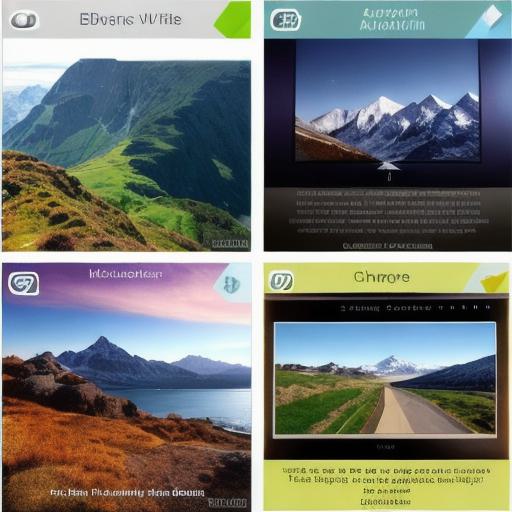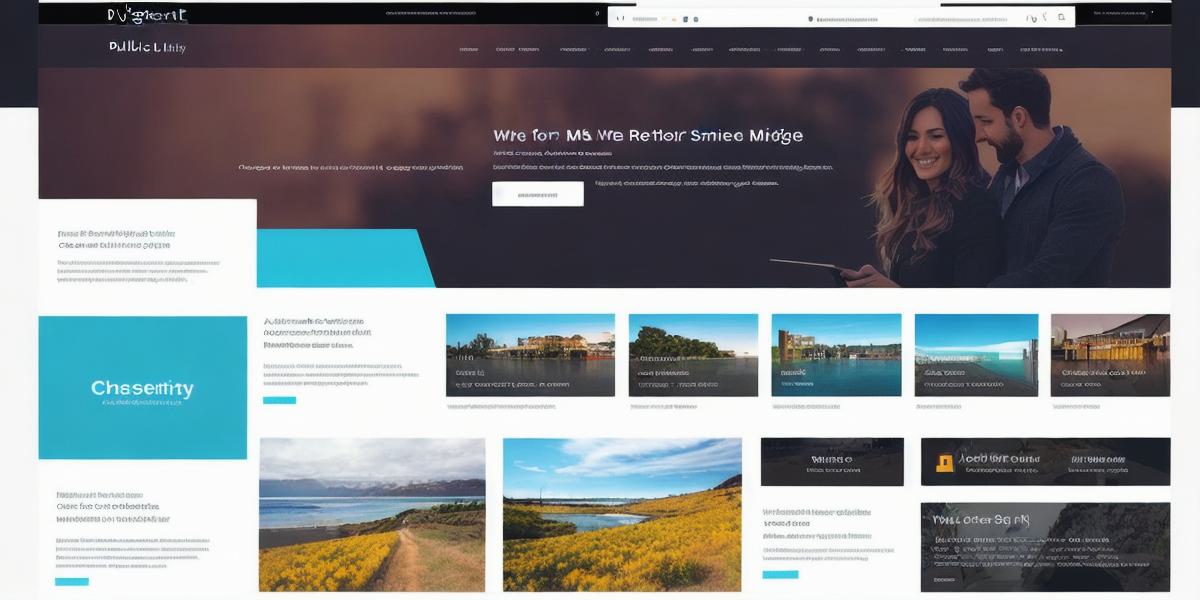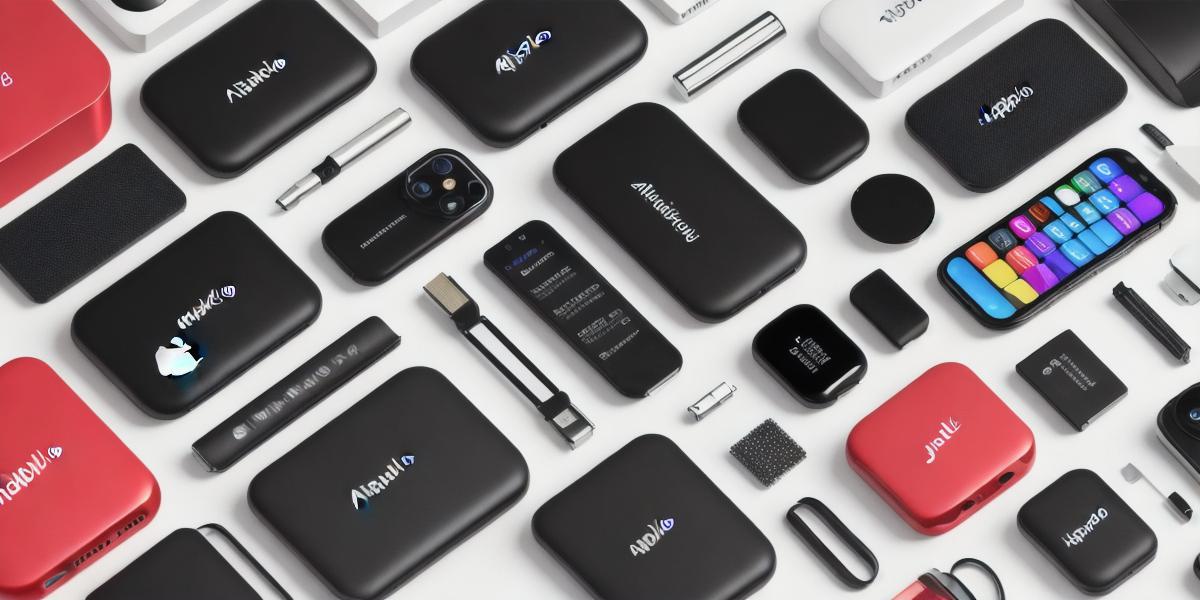The Art of Marketing: Building a Successful Website with Viral Tools
Building a successful website requires a comprehensive marketing strategy. A well-optimized website can attract organic traffic and convert visitors into customers, but it takes more than that to make your site stand out in the crowded digital landscape. The right tools can help you achieve virality, amplify your brand’s reach, and drive growth. In this article, we will explore some of the best marketing tools for building a successful website and how to use them effectively.

Understanding the Basics of Viral Marketing
Viral marketing is the process of creating content that spreads from person to person like a virus. It’s a powerful way to amplify your brand, build awareness, and generate leads. The key to viral marketing lies in its ability to capture people’s attention, create an emotional connection, and inspire them to share.
The Science of Virality: What Makes Content Go Viral?
According to a study by Jonah Berger, the four main triggers that make content go viral are:
- Social Proof: People tend to share content that has already been successful and has received a lot of attention or positive reviews.
- Emotion: Content that evokes strong emotions such as happiness, sadness, or anger is more likely to be shared than neutral content.
- Practical Value: Content that provides practical solutions or solves a problem is more likely to be shared than content that doesn’t provide any value.
- Storytelling: People are drawn to stories and are more likely to share content that tells a story or has a human element.
These four triggers can be applied to different types of marketing tools, including social media platforms, email marketing, content marketing, and influencer marketing. In the next section, we will explore some of the best marketing tools for building a successful website and how to use them effectively.
Social Media Platforms: The Power of Viral Content on Social Networks
Social media platforms are an excellent way to amplify your brand’s reach and engage with your audience. Some of the most popular social media platforms include Facebook, Twitter, Instagram, LinkedIn, and YouTube.
Facebook: With over 2.8 billion monthly active users, Facebook is one of the largest social networks in the world. It’s a great platform for building brand awareness, engaging with your audience, and driving traffic to your website. To make the most out of Facebook, you can create engaging posts, run paid ads, and collaborate with influencers.
Twitter: Twitter is ideal for breaking news, trending topics, and real-time engagement. It’s a great platform for customer service, brand management, and influencer marketing. To get the most out of Twitter, you can use hashtags, run paid ads, and engage with your followers.
Instagram: Instagram is an ideal platform for visual content such as images and videos. It’s a great way to showcase your products or services, build brand awareness, and engage with your audience. To make the most out of Instagram, you can use hashtags, run paid ads, and collaborate with influencers.
LinkedIn: LinkedIn is an excellent platform for professionals and businesses looking to connect with other professionals in their industry. It’s a great way to build brand awareness, share content, and engage with potential customers or partners. To get the most out of LinkedIn, you can create engaging posts, run paid ads, and join relevant groups.
YouTube: YouTube is an excellent platform for video content such as tutorials, product demos, and how-to guides. It’s a great way to build brand awareness, engage with your audience, and generate leads. To make the most out of YouTube, you can create engaging videos, run paid ads, and collaborate with influencers.
Email Marketing: Building Relationships with Your Audience
Email marketing is an effective way to build relationships with your audience, promote your brand, and drive traffic to your website. Here are some tips for using email marketing effectively:
- Build a targeted email list: The key to successful email marketing is building a targeted email list of people who are interested in your products or services. You can use lead magnets such as free eBooks, webinars, or discounts to incentivize people to sign up for your email list.
- Craft engaging subject lines: Your subject line is the first thing people see when they receive your email. Make it catchy, informative, and relevant to your content.
- Use personalization: Personalizing your emails with the recipient’s name or other relevant information can help you build a stronger connection with your audience and increase engagement rates.
- Provide value: Your emails should provide value to your audience by offering useful tips, helpful advice, or exclusive promotions.
- Optimize for mobile: Many people check their emails on their mobile devices, so it’s important to optimize your emails for mobile. Use a responsive design and keep the content concise and easy to read.
- Monitor engagement rates: Keep track of your email engagement rates and use this information to improve your campaigns. Experiment with different subject lines, call-to-actions, and content to see what works best.
Content Marketing: Building Authority and Trust through Content Creation
Content marketing is an effective way to build authority and trust with your audience by providing valuable information and insights. Here are some tips for using content marketing effectively:
- Identify your target audience: Before you create any content, it’s important to identify your target audience and what they are looking for in terms of information and insights.
- Create high-quality content: Your content should be well-researched, informative, and engaging. Use a mix of formats such as blog posts, infographics, videos, and podcasts to keep your audience interested.
- Optimize for SEO: Make sure your content is optimized for search engines by using relevant keywords, meta descriptions, and headings. This will help you rank higher in search results and attract more organic traffic to your website.
- Promote your content: Share your content on social media platforms, email newsletters, and other channels to reach a wider audience. You can also use paid advertising to promote your content to specific audiences.

- Monitor engagement rates: Keep track of your content’s engagement rates and use this information to improve your campaigns. Experiment with different formats, topics, and distribution channels to see what works best.
Influencer Marketing: Leveraging the Power of Influencers to Build Brand Awareness
Influencer marketing is an effective way to build brand awareness by leveraging the power of influencers who have a large following on social media platforms. Here are some tips for using influencer marketing effectively:
- Identify the right influencers: Look for influencers who have a relevant audience and align with your brand’s values and mission. Make sure they have a good reputation and have previously worked with similar brands to yours.
- Develop a clear strategy: Define the goals of your campaign, identify the KPIs you will measure, and develop a clear plan for how you will collaborate with influencers.
- Provide value: Influencers are only interested in working with brands that provide value to their audience. Make sure you offer something of value such as a discount code, exclusive access, or a free sample.
- Monitor engagement rates: Keep track of your campaign’s engagement rates and use this information to improve future campaigns. Measure KPIs such as reach, impressions, clicks, and conversions.
- Maintain relationships: Build a strong relationship with the influencer and maintain communication beyond the campaign. This can help you leverage their influence in future campaigns or collaborations.
Summary: Building a Strong Brand
Building a strong brand is essential for attracting customers, generating leads, and growing your business. Here are some tips for building a strong brand:
- Develop a clear brand identity: Your brand identity should be consistent across all channels and include elements such as logos, colors, fonts, and messaging.
- Provide exceptional customer service: Providing exceptional customer service can help you build trust and loyalty with your customers. Make sure your team is trained to handle complaints and provide helpful solutions.
- Consistently deliver value: Your brand should consistently deliver value to your customers through high-quality products or services, informative content, or exclusive promotions.
- Leverage social media platforms: Social media platforms are an excellent way to build relationships with your audience, promote your brand, and drive traffic to your website.
- Measure and optimize: Keep track of your brand’s performance using metrics such as engagement rates, customer satisfaction, and sales. Use this information to continuously improve your branding efforts and grow your business.




